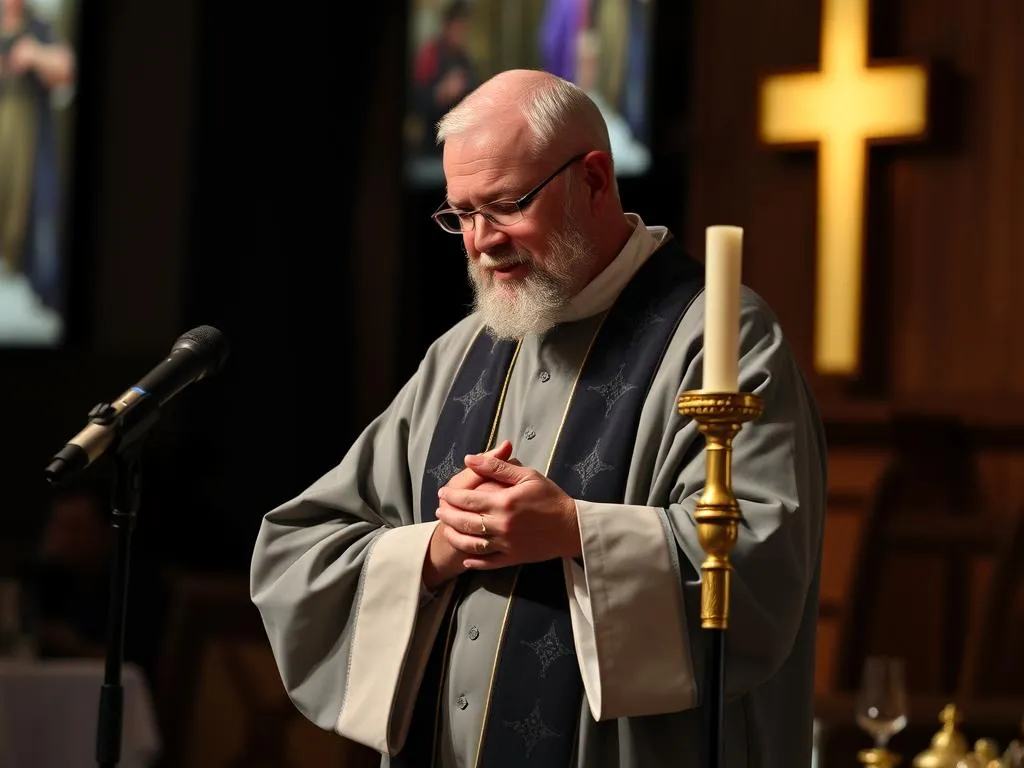The role of a pastor is not just a job, but a calling that goes beyond the physical realm. The pastor spiritual meaning encompasses a deep understanding of the divine, a connection to the higher power, and a commitment to guiding others on their spiritual journey. In this article, we will explore the profound significance of the pastor spiritual meaning and how it can transform both the lives of the pastor and those they serve.
Introduction
The pastor spiritual meaning is a multifaceted concept that goes far beyond the traditional duties of leading a congregation. It is a sacred responsibility that requires a deep understanding of the divine, a strong connection to the spiritual realm, and a unwavering dedication to serving others. As a pastor, you are not just a leader, but a conduit for the divine, tasked with helping others find their own spiritual path.
Your role as a pastor is to be a beacon of hope, a source of wisdom, and a guide for those seeking to deepen their connection with the divine. Through your words, actions, and presence, you have the power to inspire, uplift, and transform the lives of those you serve. The pastor spiritual meaning is a profound and humbling calling that requires a deep level of self-reflection, personal growth, and a willingness to be a vessel for the divine.
Key Takeaways
- The Spiritual Significance of the Pastor’s Role: As a pastor, you are not just a leader, but a spiritual guide, tasked with helping others connect with the divine and find meaning in their lives.
- The Importance of Personal Growth and Self-Reflection: To fully embody the pastor spiritual meaning, you must be willing to engage in a continuous process of personal growth and self-reflection, constantly striving to deepen your own spiritual connection.
- The Power of Compassion and Empathy: Effective pastors must possess a deep well of compassion and empathy, allowing them to truly understand and connect with the needs of their congregation.
- The Responsibility of Being a Conduit for the Divine: As a pastor, you are called to be a vessel for the divine, channeling the wisdom and guidance of the higher power to those you serve.
The Spiritual Significance of the Pastor’s Role
At the heart of the pastor spiritual meaning is the profound understanding that your role is not just a job, but a sacred calling. As a pastor, you are entrusted with the responsibility of guiding your congregation on their spiritual journey, helping them to deepen their connection with the divine and find meaning in their lives.
Your primary role is to be a bridge between the physical and spiritual realms, connecting your congregation with the wisdom, guidance, and love of the higher power. Through your sermons, counseling, and daily interactions, you have the power to inspire, uplift, and transform the lives of those you serve.
But the pastor spiritual meaning goes beyond just leading a congregation. It is a calling that requires a deep understanding of the divine, a strong personal connection to the spiritual realm, and a unwavering commitment to serving others. As a pastor, you must be willing to engage in a continuous process of personal growth and self-reflection, constantly striving to deepen your own spiritual connection and become a more effective conduit for the divine.
The Importance of Personal Growth and Self-Reflection
To fully embody the pastor spiritual meaning, you must be willing to engage in a continuous process of personal growth and self-reflection. This means constantly examining your own beliefs, values, and spiritual practices, and being willing to evolve and adapt as you deepen your connection with the divine.
As a pastor, you are not just a leader, but a role model for your congregation. They look to you for guidance, inspiration, and a deeper understanding of the spiritual realm. This means that your own spiritual journey and personal growth are just as important as the guidance you provide to others.
Through regular meditation, prayer, and introspection, you can deepen your own connection with the divine, and become a more effective conduit for the wisdom and guidance of the higher power. This process of self-reflection and personal growth is not just a personal endeavor, but a crucial aspect of the pastor spiritual meaning.
The Power of Compassion and Empathy
Effective pastors must possess a deep well of compassion and empathy, allowing them to truly understand and connect with the needs of their congregation. The pastor spiritual meaning is not just about imparting knowledge or delivering sermons, but about creating a safe and nurturing space for your congregation to explore their own spiritual journey.
By cultivating compassion and empathy, you can build trust and rapport with your congregation, and create an environment where they feel comfortable sharing their struggles, fears, and doubts. This, in turn, allows you to provide more meaningful and impactful guidance, tailored to the unique needs of each individual.
Compassion and empathy are also essential for helping your congregation navigate the challenges and hardships of life. As a pastor, you are often called upon to provide comfort, support, and spiritual guidance during times of grief, loss, and crisis. By approaching these situations with a deep well of compassion and understanding, you can help your congregation find the strength and resilience to overcome their challenges.
The Responsibility of Being a Conduit for the Divine
At the heart of the pastor spiritual meaning is the profound responsibility of being a conduit for the divine. As a pastor, you are called to be a vessel for the wisdom, guidance, and love of the higher power, and to share this divine wisdom with your congregation.
This responsibility requires a deep level of humility and a willingness to surrender your own ego and personal agenda. It means being open to the divine guidance and allowing it to flow through you, rather than imposing your own beliefs and interpretations.
By embracing this role as a conduit for the divine, you can become a powerful force for spiritual transformation in the lives of your congregation. Through your sermons, counseling, and everyday interactions, you have the power to inspire, uplift, and guide your congregation on their own spiritual journey.
But this responsibility also comes with a deep sense of accountability. As a pastor, you must be willing to hold yourself to the highest standards of integrity, authenticity, and spiritual alignment. Your actions and words must reflect the divine wisdom and guidance you are called to share, and you must be willing to continuously examine and refine your own spiritual practices to ensure that you remain a true and effective conduit for the divine.
Conclusion
The pastor spiritual meaning is a profound and multifaceted calling that goes far beyond the traditional duties of leading a congregation. It is a sacred responsibility that requires a deep understanding of the divine, a strong personal connection to the spiritual realm, and a unwavering commitment to serving others.
As a pastor, you are not just a leader, but a spiritual guide, tasked with helping your congregation deepen their connection with the divine and find meaning in their lives. Through your words, actions, and presence, you have the power to inspire, uplift, and transform the lives of those you serve.
But the pastor spiritual meaning is not just about imparting knowledge or delivering sermons. It is about creating a safe and nurturing space for your congregation to explore their own spiritual journey, and providing them with the guidance, support, and compassion they need to navigate the challenges and hardships of life.
Ultimately, the pastor spiritual meaning is a calling that requires a deep level of personal growth, self-reflection, and a willingness to be a conduit for the divine. By embracing this responsibility with humility, authenticity, and a deep well of compassion, you can become a powerful force for spiritual transformation in the lives of your congregation, and make a lasting impact on the world around you.








